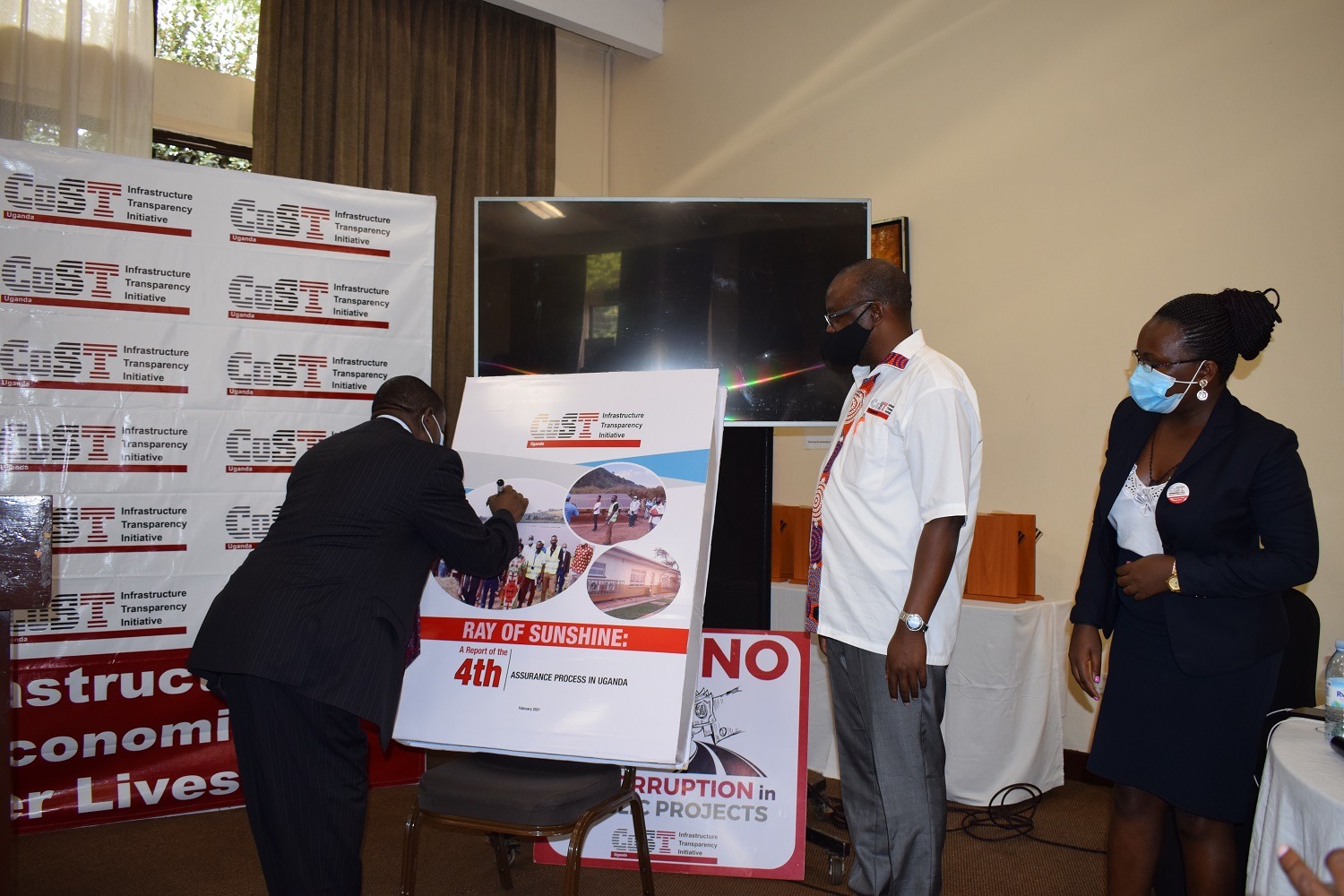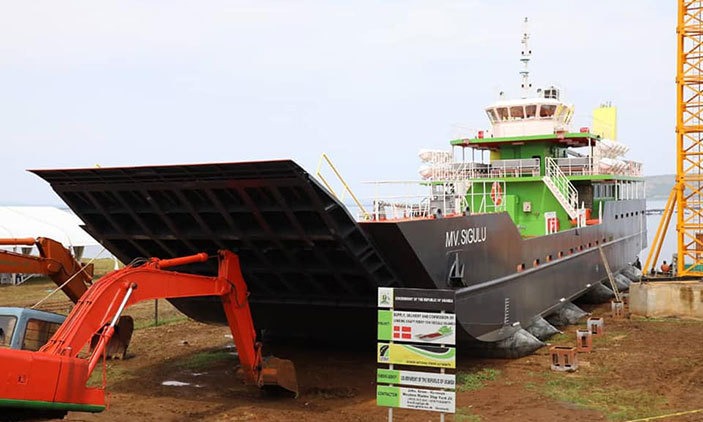Government entities in Uganda have improved on their transparency and disclosure of information on infrastructure projects to the public, a report by an initiative that tracks good practice in this area has found. The report just published by CoST Uganda, however says that lack of a government aligned electronic procurement portal is hindering standardized and full disclosure, and therefore access to information on public projects. It recommends that the government through the Public Procurement and Disposal of Public Assets Authority (PPDA) should put in place such standardized mechanisms.
CoST is an Initiative that works to bring transparency in infrastructure projects. It works with governments, industry and local communities in member countries around the world to get better value from their public infrastructure investment, by increasing transparency and accountability. The Initiative is currently in 19 countries across 4 continents where it promotes transparency and disclosure of data from public infrastructure investment, thereby informing and empowering citizens to hold their decision-makers to account.
One of its flagship products is the Assurance Process reports. In Uganda, the latest is the fourth such report to be published.
Gilbert Sendugwa, the Initiative’s senior regional manager for Africa said in an e-mail to The Infrastructure Magazine that, “From the 4th (current) assurance process, we note that, the culture of transparency is taking root in the country.”
He said that of the 23 infrastructure projects assessed in this round, information disclosure stood at 62 per cent, which is an improvement (increase) of 20 per cent from the previous similar assurance process which showed only 42 per cent of the assessed entities demonstrating transparency and disclosure. The last such report – which was the third in a sequel by Cost Uganda was launched in January 2020.
The just released report, A Ray of Sunshine: Report of the Fourth Assurance Process in Uganda, was published from findings of assessment of 23 public projects selected from eight procurement entities in government, spread through the education, health, water and environment, works and transport sectors.
They included:Ministry of Education and Sports (1 project), Ministry of Health (3 projects), Ministry of Works & Transport (7 projects), Uganda National Roads Authority (UNRA) (4 projects), Ministry of Water and Environment (1 projects). The others are Wakiso District Local Government (2 projects), National Water and Sewerage Corporation (2 projects) and Kampala Capital City Authority (3 projects).
The projects are valued at approximately Shs4.6 Trillion (about US$ 1.3 Million).
The report found that proactive disclosure (revelation of information by entities without any external instigation) increased from 43 to 55 per cent, while reactive disclosure (revelation upon request for information from external entities) tremendously increased from 42 per cent to 70 per cent.
Sendugwa said that to further improve the transparency and disclosure scores in future, it is important that the Ministry of Finance, Planning and Economic Development through the Public Procurement Disposal Authority (PPDA) fast track alignment of the Electronic Procurement Portal (E-GP) and the Government Procurement Portal (GPP) to the Open Contracting for Infrastructure data Standard (OC4IDS) to enable full disclosure and categorization of procurement data.
The report also recommends that “Government through Public Procurement and Disposal of Public Assets Authority (PPDA) issue a standard disclosure template for infrastructure projects. This should be accompanied with associated guidelines on how data can be disclosed.”
The CoST Infrastructure Data Standard (IDS) and the Open Contracting for Infrastructure Data Standard (OC4IDS) provides for such a standard.
The report further recommends the PPDA monitor compliance and enforce implementation of the local content and reservation schemes, and train public officials on procurement guidelines and “to review procurement guidelines and bidding documents to provide for Occupational Health and Safety Safeguards, stakeholder engagement, awareness raising, inclusion of women, and youth in the contracting processes, and to monitor compliance at implementation.”
| It also recommends that the national IT Authority (NITA-U) support government procuring entities to put in place robust public disclosure platforms to provide regular updates and establish internal data management and retrieval systems. It also recommends contractors and consulting engineers to adhere to set standards, methods of delivery and agreements during project delivery processes. The aim of the CoST reports is to catalyse reform, improve efficiency and reduce mismanagement, corruption and the risk to public safety from poor construction. By doing this, it drives better value from public infrastructure investment by increasing transparency and accountability. It is estimated that without significant improvement in transparency in the delivery of public infrastructure, by 2025 up to US$5trillion could be lost annually. |












